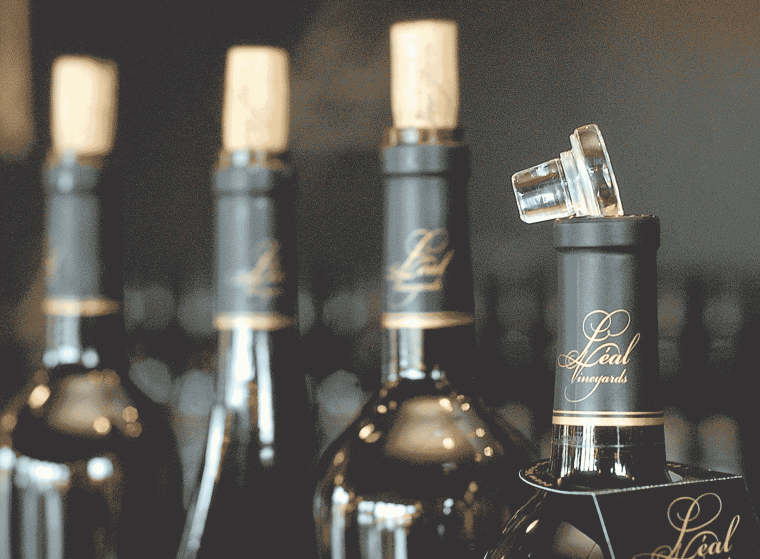
Hollister
– As the wine industry looks to move away from cork, some San
Benito County wineries are beginning to make their first foray into
bottle-sealing alternatives.
Hollister – As the wine industry looks to move away from cork, some San Benito County wineries are beginning to make their first foray into bottle-sealing alternatives.
Wine experts estimate that 2 to 8 percent of all bottles suffer from cork taint, resulting from the presence of a chemical that causes the wine to take on an unpleasant odor. The problem for the wine industry is that after centuries of popping the cork, consumers may be slow to catch on. Cork alternatives include metal screw tops, glass stoppers and even boxing the wine.
Frank Leal, the owner and founder of Hollister’s Leal Vineyards, decided on Alcoa’s Vino-Seal glass stopper as a more elegant alternative to a screw top or box container for his vineyard’s 2005 sauvignon blanc.
“I was the second guy in the U.S. to use a glass top,” Leal said. “I’m not a big fan of the screw-top because it doesn’t give it the same mystique as a cork does.”
Chris Walker, manager for Leal Vineyards, said the glass stopper was chosen because of its unique design. However, it took a half dozen Alcoa-sent workers three days to install the glass stoppers in the 843 cases of 2005 sauvignon blanc bottles, Walker said. She said the stopper may be too labor intensive and is just as expensive as cork.
“For the time being we’ll probably stick with the traditional cork,” Walker said.
Lee Stipp, the national sales and marketing director for Donati Family Vineyard in Paicines, said the winery will use a screw top for its 2006 pinot grigio and pinot blanc.
For Donati and Stipp, the decision had more to do with the variety of the wines themselves. He said a white wine like chardonnay benefits from the gas exchange provided by a cork to help its flavor age. With the pinot grigio and pinot blanc, young flavors are what is desired, Stipp said.
However, Stipp believes the screw top will be a better option down the road.
“Over the long term, a screw top would be more effective,” Stipp said.
Although Stipp said he was concerned with consumer acceptance, he believes the relatively low volume of 2006 pinot grigio and pinot blanc that Donati produces will sell fast.
Stipp said he believes boxed wine is a good alternative to corked bottles because of its ease of storage and effective delivery of the wine itself.
For now, Donati will continue to bottle its wine, Stipp said. As a small company, changing the mode of production could prove costly, he said. But for larger wineries, which have the money to research and change, the move away from cork makes more sense, Stipp said.
“I think I’d rather let the big guy pave the way for us little guys,” Stipp said.
Michael Van Cassell covers public safety for the Free Lance. He can be reached at 831-637-5566 ext. 335 or mv*********@***********ws.com.









